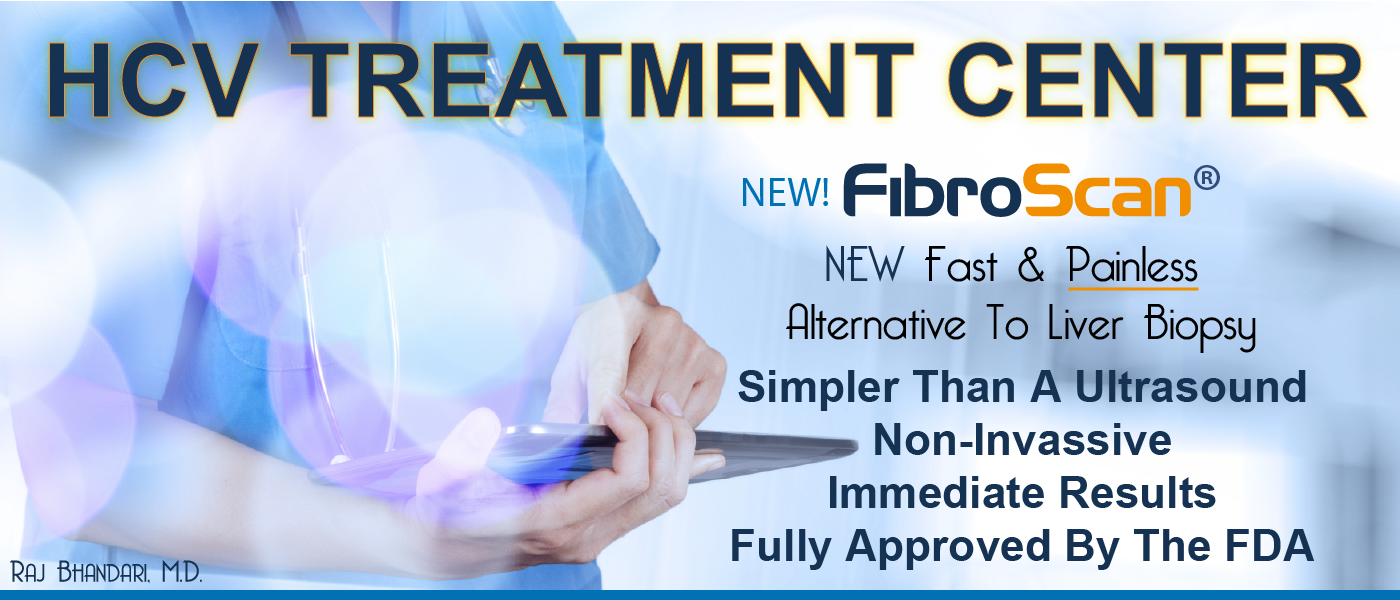
The Delta HCV Treatment Center
For appointment call: 318 283-3990
About the Treatment Center
The Delta HCV Treatment Center is a new initiative, focusing on the recognition, treatment and management of Hepatitis C. The treatment Center, located in Bastrop, Louisiana, is lead by Dr. Raj Bhandari, in collaboration with the GI Clinic, in Monroe, LA.
HCV Facts
- There are an estimated 3.5 - 5 million people, in the US, infected with the virus.
- There are NEW medicines available, for treating the virus, that are safe and curative.
- We now have the opportunity to help end this epidemic, but it will be challenging.
Unfortunately, these new medicines are very expensive ($56,000 - $80,000) for the course of the therapy. And, getting access to treatment can be a long and challenging process, that often ends unsuccessfully.
HCV Care Team
The Delta HCV Treatment Center has created a HCV Care Team, with the hope to overcome the obstacles. The team is led by a highly trained HCV clinician and includes several specialized support staff.
Lead HCV Clinician: Assesses treatment readiness, stages liver disease and treat HCV in appropriate patients.
Treatment Access Support Person: Complete documentation for prior authorization of medications. Communicates with pharmacy and patient, to facilitate treatment access.
Treatment Adherence Support Person: Educates patients on treatment, liver health and reinfection. Dispenses medications. Assesses and intervenes, to support adherence.
Primary Care Physician: Consults with lead clinician and sees patient as needed, in order to manage any complications and monitor post-treatment.
Staging Patient
Each patient will be staged with a FibroScan (see below). The FibroScan is a non-invasive, fast and very accurate method of assessing liver fibrosis, and in the majority of cases, a liver biopsy is not necessary. The Delta HCV Treatment Center has the only FibroScan in Northeast Louisiana.
Our Mission
Our mission is to take the burden away from the primary care physician, of trying to access treatment for their patients, as the main challenge is medication access. At present, the HCV Treatment Center applies to all Medicare patients and private insurers. We will work very aggressively with pharmaceutical companies, etc, so that patients will have minimal or no copays, for their treatment - essentially, zero out of pocket expense.
Medicaid currently in the State of Louisiana, has very specific criteria to be approved and they are constantly changing. We will submit to the Medicaid plan everything that they need to make a determination of acceptance or denial, on the patient’s behalf. They will write the patient a letter of denial or acceptance to the patient. If approved, we will work with their pharmacy to dispense the medication and if denied you have the right to appeal.
Our Goal
The goal of the Center is to provide a unique, community based service, to help move towards ending the HCV epidemic.
If we can show:
- Exceptional outcomes
- Exceptional compliance
- Cure rates > 95%
Then we can present HCV Treatment Center model, to the state and hope that they will loosen the requirements, to make it easier to treat the Medicaid population, as well.
What is FibroScan?
Examination with FibroScan® (transient elastography) is a technique used to assess liver stiffness (measured in kPa correlated to fibrosis) without invasive investigation. The result is immediate, it shows the condition of the liver and allows physicians to diagnose and monitor disease evolution in conjunction with treatment and collateral factors. Exam results help to anticipate various complications, as well as to monitor and assess the damage caused by conditions such as cirrhosis. The FibroScan examination is painless, quick and easy. During measurement, you feel a slight vibration on the skin at the tip of the probe.
What does the FibroScan examination consist of?
- You lie on your back, with your right arm raised behind your head. Physician applies a water-based gel to the skin and places the probe with a slight pressure
- The examination includes 10 consecutive measurements made at the same location
- The result is delivered at the end of the examination, it’s a number which can vary from 1.5 to 75 kPa. Your doctor will interpret the result
What does the result mean?
Your physician interprets the result according to your history and underlying disease.
Who can prescribe the FibroScan® examination?
Your physician or hepatologist will indicate the most appropriate time for you to have the examination.
What difference does FibroScan make to me?
- Fibroscan provides immediate results
- It’s easy and fast (5-10 minutes)
- The exam is painless and non-invasive
- In case of close follow-up, the examination can be safely repeated
For appointment call: 318 283-3990
Why should you have a FibroScan examination?
FibroScan may help you get approval for the new Hepatitis C treatments. In many cases FibroScan can help you and your doctor avoid the added risk and possible complications of a liver biopsy
After a successful treatment,having a yearly FibroScan can monitor your liver's recovery. Recovery from liver fibrosis may lower your long term risk of cancer. FibroScan can show you how your recovery is advancing.
A FibroScan examination might be needed if you have any of the following conditions:
- Virus infections, such as Hepatitis B or Hepatitis C
- Alcohol related liver disease
- Obesity related liver disease (Non-alcoholic fatty liver disease)
- Other types of chronic liver disease
How FibroScan works
Fibroscan uses "shear waves" to measure the elasticity of the liver using an improved technique called Vibration-Controlled Transient Elastography. As the shear wave passes through the liver, it is affected by the amount of scarring (fibrosis), and this is interpreted to give an accurate global assessment of the stage of fibrosis (fibrosis staging).
The proper use of shear wave velocity analysis requires control of various physical parameters to ensure an accurate, reliable, and reproducible assessment of tissue stiffness, all inherent features incorporated into the Fibroscan. The stiffer the liver the more severe the fibrosis.
What is liver fibrosis and why detect it early?
Liver fibrosis is a condition of scarring and stiffness of the liver and is caused by a variety of medical conditions. The most advanced form of scarring is called cirrhosis.
Cirrhosis can result from long term liver infections or long term liver toxins in which the healthy liver tissues are slowly replaced by scar tissues. Initially the scar tissue is fine and delicate and difficult to detect but over time it becomes thicker and can start to strangle the liver. This can prevent the liver from functionally properly. This can lead to advanced, and often irreversible, liver failure. Patients with liver failure usually require a transplant. Avoidance of cirrhosis by early detection of fibrosis has been a challenge.
Routine test
Using the FibroScan® 502 device, we can now routinely provide this test to all patients who have or have had chronic conditions of the liver including those patients who previously underwent treatment.
FibroScan for HBV & HCV patients
Patients who live with viral hepatitis might not have any noticeable health problems for years. However, as the years progress, scarring in the liver can build up and slowly lead to liver failure. Once that stage is reached, the patient will need a liver transplant.
With the new FibroScan technology it is now easy to measure the health of the liver and see how much scarring the hepatitis virus has caused. Knowing the stage of fibrosis can help a patient decide if they need to start a treatment plan immediately.
Monitoring the progress of the liver disease
FibroScan® tests can be repeated regularly (e.g. every 6-12 months) without any health risks. This can help monitor the progression of a liver disease. If you are starting a treatment (e.g. for Hepatitis C), or are making lifestyle changes to lessen the severity of damage to your liver, a FibroScan will help monitor change.
Dr. Bhandari has staff privileges
at the following hospitals:

Monday, Wednesday
& every other Thursday

Tuesday & every
other Thursday

Every other Friday
Our Location:
Monday to Friday: 8:00 AM to 5:00 PM.
616 South Washington | Bastrop, LA 71220 | PH: 318 283-3990

